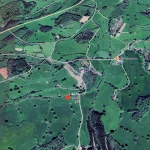Testing UK Broadband – BBC iPlayer to Stream 4K Blue Planet 2 TV Series
The BBC has announced that their video streaming iPlayer service will, from Sunday 10th December 2017, release the full TV series of Blue Planet II in 4K (UltraHD) and High Dynamic Range (HDR) video quality as part of an initial trial. But you’ll need a good broadband connection and the right kit to view it.
Avid readers will recall that the BBC has tested 4K and HDR content on their iPlayer service before, albeit only with a brief teaser clip at the end of last year from the related TV series of Planet Earth II (here). The original test was also only available to TVs that supported the BBC’s own HDR standard (HLG – Hybrid Log-Gamma), which could be found on certain 4K displays from Hisense, LG, Panasonic, Philips and several brands by Vestel.
Today 4K and HLG supporting devices are much more common, which means that the latest 4K trial will find its way to around 400 TV models, as well as Roku’s 4K Streaming Stick+ and the Sky Q platform (although streaming on Sky won’t support HDR). Sadly neither Apple nor Amazon’s latest streaming boxes are able to offer compatible iPlayer apps, while Sony’s latest ZD9 and A1 TV sets will also be excluded.
Advertisement
NOTE: Netflix and Amazon use different technologies for HDR (HDR10 and Dolby Vision).
Broadband Speed
The next most obvious question to answer is, how fast does your broadband connection need to be in order to stream the new content? Unfortunately the BBC still hasn’t given us a clear answer on that, which is perhaps because the technology is still in a state of active development. Nevertheless we can try to take a quick stab at figuring it out.

At present the BBC iPlayer service recommends a download speed of just 2.8Mbps (Megabits per second) for their HD video streams, which falls to 1.5Mbps for “standard quality“. This is roughly in keeping with other platforms, although Netflix and YouTube do tend to suggest up to around 5Mbps for their best 1080p HD quality (1920 x 1080 pixels). Experiences will of course vary, depending upon the video content and connection.
Advertisement
The huge quality increase with 4K (3840 x 2160 pixels) tends to push this up and Netflix recommends a speed of 25Mbps (Amazon is the same, although YouTube suggests 15Mbps). In practice the use of pre-caching and the dynamic nature of video bit rates mean that a 15Mbps connection might still offer a fairly smooth experience (i.e. less complicated scenes may only need 5Mbps and others could ramp to 30Mbps+). We’d say this is a reasonable expectation for the BBC too.
The big unknown here is how much extra strain their HDR content will put on those figures, although we’ve seen some people with a 15-20Mbps connection managing to play last year’s 4K + HDR test just fine and so the above is probably still a fair assumption. Lest we forget that the codecs are always improving and over time speed requirements for 4K video streaming will come down.
Just to put this in some extra perspective, a 1 hour episode running in 4K could potentially gobble around 7-11GB (GigaBytes) of data on a 25Mbps requirement. I’ve given a variable figure because the Bitrate of the video stream will fluctuate depending upon the content being displayed and any change in your own connection (quality may automatically reduce if your speed drops), thus it’s always difficult to be precise.
Matthew Postgate, BBC Chief Technology and Product Officer, said:
“The extra quality that Ultra HD, HDR and the wider range of colours brings to audiences is unparalleled. Blue Planet II is the first programme we’ve shown in such high quality and perfectly demonstrates how the BBC is pushing the boundaries of digital innovation.
Making the full series available in Ultra HD and HDR on BBC iPlayer is the next step in reinventing the BBC for a new generation, and there’s not a better place to start than with the stunning Blue Planet II.”
The series is due to be released to iPlayer immediately after the final episode of Blue Planet II is broadcast on BBC One this coming Sunday. Sadly we don’t have any HDR supporting kit in-house to test the performance, but if anybody out there does then please try to track how much speed the stream requires and report back.
Advertisement
At present around half of the active broadband connections in the UK should be running off a service that is fast enough to support 4K streaming and it’s estimated that similar 25Mbps capable connectivity is available to order by 94%+ of premises. However, in the real-world there are often complications that can disrupt such connectivity, such as slow WiFi, poor home wiring, full to capacity street cabinets, network congestion and so forth.
Some readers may also be concerned about the new content putting a strain on broadband ISPs, which can in extreme cases result in network congestion that may impact service performance. Most of the time ISPs are able to adapt to such increases in demand and since the bulk of people will have already watched the TV series then this may help keep real-world use manageable.
UPDATE 10:23am
We’ve managed to get a few more details from the BBC. Apparently Blue Planet 2 on iPlayer will run at 25fps via DVB-DASH adaptive bitrate streaming and HEVC (Main 10 Profile, Level 5.1) compression, primarily because it supports the 10-bit data path required for the HDR television signal.
The BBC said that the highest HD quality they currently deliver on iPlayer is 1280×720 at 50 fps (720p/50) at around 5Mbps. By using HEVC, they can increase the resolution to 1600×900, and add both wide colour gamut and HDR “for the same bitrate” (note: this isn’t yet at 4K quality, but see below).
A table produced by the broadcaster for their 4K test states that the top quality will require a speed of about 22.7Mbps. “So even if you have broadband below 20Mbps your UHD TV should still be able to get better resolution, wide colour gamut and HLG high dynamic range“, said the BBC’s Principal Technologist, Andrew Cotton.
Using this technology an ordinary Full HD stream on iPlayer with HDR enabled (1920 x 1080 pixels) would require a connection speed of around 7Mbps. Remember real-time video bit rates will vary a lot, so you won’t always need the top speed.
We should add that when the BBC encodes an episode they create up to 11 different versions at different image resolutions, which means they can target different bandwidth internet connections (from 480 x 270 and up to 3840 x 2160 pixels). They also include stereo audio encoded as AAC-LC at 128 kbit/s.
Some further details have now been made available here about supported devices.
Mark is a professional technology writer, IT consultant and computer engineer from Dorset (England), he also founded ISPreview in 1999 and enjoys analysing the latest telecoms and broadband developments. Find me on X (Twitter), Mastodon, Facebook, BlueSky, Threads.net and Linkedin.
« Report Warns UK Undersea Fibre Optic Data Links Vulnerable to Attack

















































Comments are closed